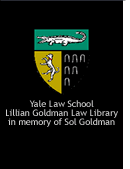
 |
 |
Role of the Legal Profession - produced by Yuval Miller & Rob Parker A significant part of the Truth and Reconciliation Commission’s mandate was to foster forgiveness and reconciliation between racial groups in South Africa. The case of Brian Mitchell—the police commander who massacred eleven people in the small community of Trust Feed on December 2, 1988—provides a fascinating portrait of apartheid-era police violence, truth-telling, amnesty, and, ultimately, forgiveness and redemption. In 1988, Brian Mitchell was the captain of the New Hanover police station in Kwa-Zulu Natal. Trust Feed was one of the villages under his jurisdiction. Trust Feed was deeply divided between supporters of the United Democratic Front (UDF)—an affiliate of the African National Congress—and the Zulu nationalist Inkatha National Cultural Liberation Movement. This rivalry resulted in thousands of deaths throughout Kwa-Zulu Natal during the 1980s and early 1990s. It was fomented in large part by the police, who sought to set black resistance organizations against each other as part of the white government’s “Total Strategy” to diminish the power of the resistance and organize large parts of the black population in organizations that would cooperate with the white regime. As part of this strategy, Mitchell and his superiors collaborated with Inkatha leaders in Trust Feed to drive the UDF out of the village. On December 2, 1988, Mitchell led a group of kitskonstabels—“special constables” recruited from the local black population to augment the white police force—into Trust Feed, where they mistook a wake for a UDF gathering. The police broke into the house and murdered all eleven people inside. Though Mitchell attempted to cover up his crime, an unusually vigilant police inspector named Frank Dutton led an investigation into the massacre. Dutton and his team linked the New Hanover police battalion, and Mitchell in particular, to the murders. In an equally unusual move, Mitchell was then put on trial in an apartheid-era court and convicted of murder. He was sentenced to death, though South African President F. W. De Klerk later commuted that sentence to 30 years in prison. In 1996, Mitchell was one of the first apartheid-era criminals to seek amnesty from the Truth and Reconciliation Commission. Mitchell’s testimony at his amnesty hearing provided valuable insight into the operations of the police in Kwa-Zulu Natal, the police role in sparking internecine violence between black resistance organizations in the province, and his own role in the Trust Feed massacre. His candor and desire to “make amends” for his crime earned him amnesty in December 1996. Interestingly, the panel that granted him amnesty included Judge Andrew Wilson, the judge who had tried Mitchell and sentenced him to death in 1988. Mitchell made good on his promises to seek forgiveness for his crimes and help the people in the community he had ruined. Mitchell returned to Trust Feed in 1997, and has stayed there ever since. He has helped the raise funds and coordinate development efforts to rebuild the community. In 2003, South African Deputy President Jacob Zuma attended a renewal ceremony in Trust Feed, and praised Mitchell on his efforts to rebuild the lives that he destroyed. |
|
Biographies Yuval M Miller is from Palo Alto, California. He has a B.A. in Political Science from the University of California, Berkeley. Prior to coming to law school, he taught American Politics as a Visiting Instructor at the University of Public Administration in Budapest and researched minority political organization in the Carpathian Basin on a Fulbright Fellowship in Eastern Europe. He expects his J.D. from Yale Law School in May 2005. During law school, he was a Senior Member of Professor Harold Koh’s Civil Liberties and National Security Clinic; the Student Director of the Yale Law School Prosecution Externship; an Editor of the Yale Journal of International Law (YJIL) and the Yale Journal on Regulation (JREG); a Delegate to the Linkages Program in Santiago de Chile and 2003 Seminario en Latinoamerica de Teoria Constitucional y Politica (SELA) in Yucay, Peru; the Secretary of the Forum on the Practice of International Law (FPIL); and a Senator on the Graduate and Professional Student Senate (GPSS). He is fluent in Hebrew and conversational in Spanish and Hungarian.
Robert A Parker is from Prospect, New York. He has a B.A. in History from Syracuse University and an LL.M. in Comparative Constitutional Law from Central European University in Budapest, Hungary. Prior to coming to law school, he served in the AmeriCorps* VISTA program as a mentoring coordinator in public schools in Delaware. He expects his J.D. from Yale Law School in May 2004. During law school, he was an Editor of the Yale Law Journal, Student Director of the Allard K. Lowenstein Clinic for International Human Rights, and a Dean’s Advisor. Following graduation, he will be clerking for Judge Richard J. Cardamone on the United States Court of Appeals for the Second Circuit. |
|
| Return to Multimedia Page | List of Websites | Bibliography |
|